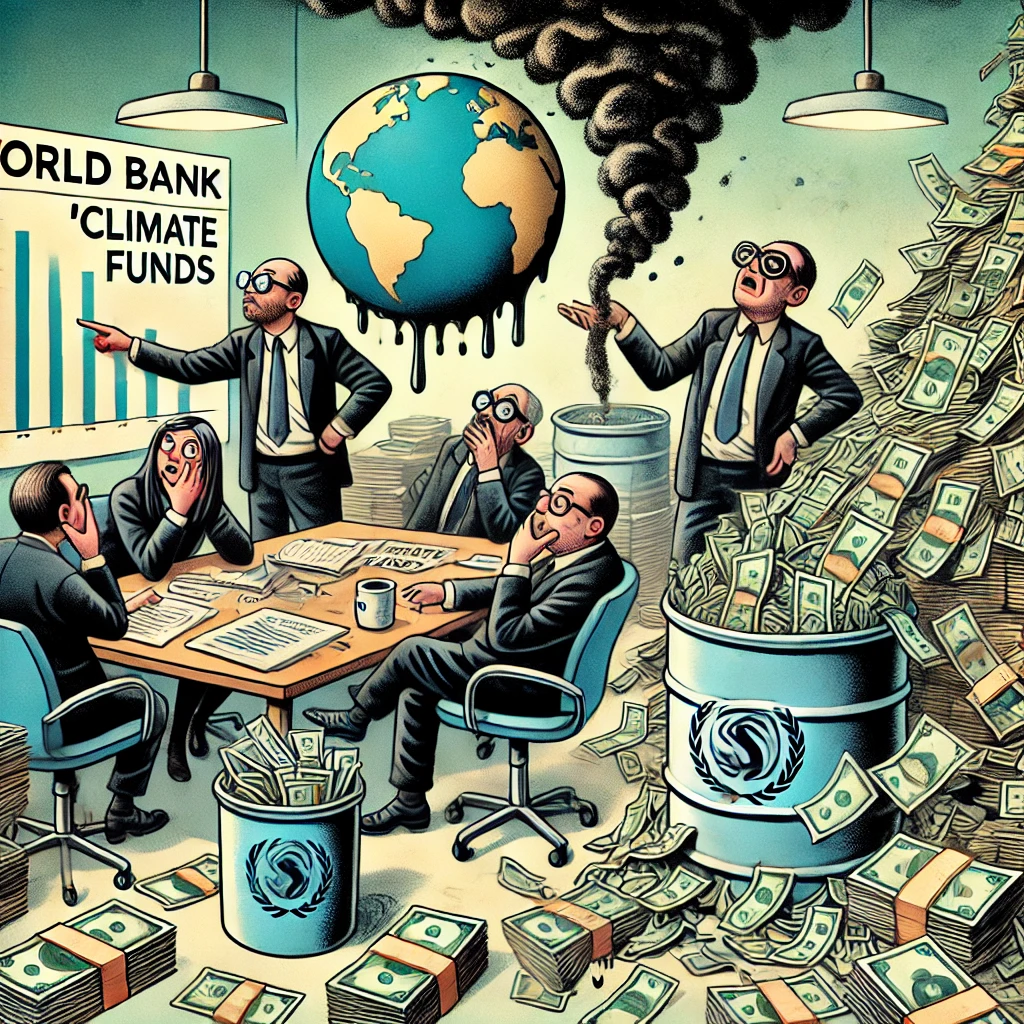The World Bank, an institution with a storied history of bureaucracy and questionable financial oversight, has outdone itself yet again. This time, it’s not just millions of dollars misplaced or misallocated — it’s a jaw-dropping $24 billion of climate change funds that have apparently wandered off into the financial ether. And here’s the kicker: that figure is just the conservative estimate. According to some insiders, the actual sum could be “twice or 10 times more.”
How does one misplace such a monumental amount of money? Are we to believe that $24 billion in supposed climate investments simply evaporated into the atmosphere? Or are we witnessing yet another example of the World Bank’s notorious talent for turning the noble cause of fighting climate change into a Kafkaesque comedy of errors?
Lost in Translation — or Mismanagement?
Because the 'Climate Crisis' is a scam, a money laundering operation.
— Anti WEF (@ANTlWEF) December 24, 2024
And to the haters, no this story was NOT debunked. They don't know where the money went. pic.twitter.com/7HG1gtNKm4
The World Bank insists that these funds were allocated to climate-related projects. However, when pressed for details, the response was a masterpiece of bureaucratic obfuscation. A veritable parade of vague reports, dubious metrics, and hollow assurances leaves even the most seasoned financial watchdogs scratching their heads.
One official was quoted saying, “It’s hard to track these funds because they’re often integrated into larger projects.” Translation: “We have no idea where the money went, but we’re sure it was important.” It’s the bureaucratic equivalent of claiming you left your wallet in your other pants — except your wallet is full of billions of dollars in public funds.
Climate Crusaders or Opportunists?
This fiasco raises uncomfortable questions about the World Bank’s actual commitment to fighting climate change. Are they truly invested in making a difference, or is climate change simply the latest gravy train for a bloated institution that thrives on unchecked spending and minimal accountability?
The lack of transparency undermines trust not just in the World Bank but in the entire global effort to combat climate change. For the billions of people affected by rising sea levels, extreme weather, and environmental degradation, this kind of financial mismanagement is more than a scandal — it’s a betrayal.
The Bigger Picture
What makes this debacle even more infuriating is the context. As developing nations struggle to adapt to climate change, they’re often saddled with onerous debt imposed by none other than the World Bank itself. Meanwhile, $24 billion (or perhaps $240 billion?) goes missing, leaving one to wonder: who’s holding the World Bank accountable?
Conclusion
This isn’t just an embarrassing accounting error. It’s a damning indictment of the World Bank’s priorities and effectiveness. Instead of funneling much-needed resources into real solutions for climate change, the funds seem to have vanished into a black hole of bureaucracy.
At Invest Offshore, we champion transparency, efficiency, and accountability in financial practices — principles that appear to be in short supply at the World Bank. If you’re looking for opportunities to make a real impact, bypass the bloated bureaucracies and consider investing directly in sustainable projects that deliver measurable results.
P.S. Invest Offshore offers investment opportunities in West Africa seeking investors for the Copperbelt Region — an area with tangible potential and a track record of delivering results. Unlike the World Bank, we know where every dollar goes.

Leave a Reply